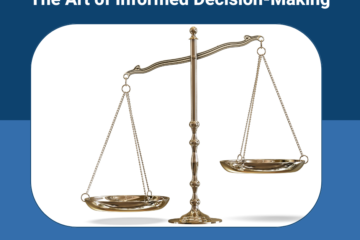
Introduction:
Communication is the cornerstone of human interaction. Whether it’s at work, at home, or in social situations, effective communication is key to success. But how can you determine the strength of your communication skills? Luckily, we’ve designed a quick quiz to help you find out! After taking the quiz, read on for additional insights and tips to become an even better communicator.

How to Take the Quiz:
Before diving into further discussion, let’s get to the heart of the matter. Take our 20-statement quiz that we’ve put together to evaluate your communication skills. The quiz will ask you to rate yourself on various aspects of communication, from body language to conflict resolution.
Quiz: How Good Are Your Communication Skills?
Instructions:
For each statement, please indicate how often the statement applies to you by selecting one of the following options:
Not at All Rarely Sometimes Often Very Often
Statements:
1. I make eye contact when speaking to others.
Not at All Rarely Sometimes Often Very Often
2. I listen actively and refrain from interrupting when someone else is speaking.
Not at All Rarely Sometimes Often Very Often
3. I am aware of my body language and non-verbal cues.
Not at All Rarely Sometimes Often Very Often
4. I ask for clarification if I don’t understand something.
Not at All Rarely Sometimes Often Very Often
5. I am comfortable speaking in front of groups.
Not at All Rarely Sometimes Often Very Often
6. I am concise and to the point when delivering a message.
Not at All Rarely Sometimes Often Very Often
7. I adapt my communication style to suit my audience.
Not at All Rarely Sometimes Often Very Often
8. I avoid using jargon or technical terms when speaking with someone who may not understand them.
Not at All Rarely Sometimes Often Very Often
9. I pay attention to how others are reacting when I am speaking.
Not at All Rarely Sometimes Often Very Often
10. I am empathetic and show understanding towards others’ perspectives.
Not at All Rarely Sometimes Often Very Often
11. I am effective in resolving conflicts through communication.
Not at All Rarely Sometimes Often Very Often
12. I know how to use tone and volume to enhance my verbal communication.
Not at All Rarely Sometimes Often Very Often
13. I regularly provide constructive feedback.
Not at All Rarely Sometimes Often Very Often
14. I am open to receiving constructive feedback.
Not at All Rarely Sometimes Often Very Often
15. I am skilled at interpreting others’ non-verbal communication.
Not at All Rarely Sometimes Often Very Often
16. I know when it is appropriate to use different forms of communication (e.g., email, phone, face-to-face).
Not at All Rarely Sometimes Often Very Often
17. I can detect when someone is not being honest or straightforward.
Not at All Rarely Sometimes Often Very Often
18. I can keep a conversation flowing and engage others in dialogue.
Not at All Rarely Sometimes Often Very Often
19. I consider cultural differences when communicating.
Not at All Rarely Sometimes Often Very Often
20. I confirm understanding by summarizing or paraphrasing what has been said.
Not at All Rarely Sometimes Often Very Often
Scoring Interpretation:
Tally up your score based on the following point system:
Not at All: 0 points
Rarely: 1 point
Sometimes: 2 points
Often: 3 points
Very Often: 4 points
Total Score Range: 0-80
Once you’ve finished, be sure to check your score interpretation at the end of the quiz. This will give you a rough idea of where you stand and what areas might need improvement.
H3. Additional Notes for Readers
So you’ve taken the quiz—what next? Understanding your score can offer invaluable insights into how you interact with others and what aspects of communication you might need to work on. Here’s a more in-depth look at what your score might mean and what you can do about it.
Low Score (0-20)
If your score falls within this range, you likely face significant challenges in communicating effectively. While it might seem daunting, the good news is that communication skills can be learned and improved. You might want to consider taking training courses, hiring a coach, or simply starting with some good books on effective communication.
Moderate Score (21-40)
You have some understanding of communication essentials but still have room for growth. Attend workshops or seminars to get hands-on experience. Practicing active listening and being aware of non-verbal cues can make a substantial difference in your interactions.
Good Score (41-60)
You’re doing pretty well! You understand the basics and even some nuanced aspects of effective communication. However, nobody is perfect, and there’s always room for improvement. Review the specific questions where you scored lower and focus on those areas.
Excellent Score (61-80)
Congratulations! You’re an excellent communicator. Consider using your skills to help others improve their communication. You might mentor a junior team member or even write about your experiences and techniques to guide others.
Expanded Tips for Effective Communication
Effective conversation is more than just getting information across. It’s about connecting with the other person, making sure there aren’t any mistakes, and settling disagreements. Even if you did well on our quiz, there’s always more you can do to improve the way you talk to people. Let’s look at some important tips for communicating well.
1. Active Listening
How it works:
Instead of just hearing the words, active listening means fully focusing on, understanding, and reacting to the speaker. It means giving the person who is talking your full attention and not talking over them. It also means showing that you are listening by nodding or saying short encouraging things like “I see” or “go on.”
Why it’s a big deal:
Active listening encourages a respectful and open conversation, which is important for both personal and business interactions. It shows that you care about what the other person has to say, even if you don’t agree with them. This can help you and the other person get along better and build trust.
How to Get Better:
Use the “SOLER” method: Stand straight up, open your body, lean slightly forward, make eye contact, and then relax.
Don’t think about what you’re going to say next as you listen.
Ask the person open-ended questions to learn more about his or her point of view.
2. Non-Verbal Cues
How it works:
Nonverbal cues include body language, facial expressions, tone of voice, and even the timing and speed of talk.
Why it’s a big deal:
Studies have shown that a big part of conversation is done without words. If you don’t understand these signs, it can be hard to talk to each other and cause problems.
How to Get Better:
Watch what you say, how you stand, and what you do with your hands.
Pay attention to the other person’s body language and try to figure out what they are trying to say.
Use mirroring methods to get along with someone by mimicking their body language in a subtle way.
3. Be Clear and Concise
How it works:
To be clear and short, you need to say what you want to say in as few words as possible without losing the meaning.
Why it’s a big deal:
Clarity helps you and the other person avoid mistakes and make sure you’re both on the same page. It is especially important in the workplace, where misunderstandings can cause big problems.
How to Get Better:
Focus on the most important things and stick to them.
Use simple words and don’t use jargon unless you’re sure the other person knows what you’re talking about.
Be clear and avoid making general comments.
4. Empathy

How it works:
Empathy is being able to understand and share the thoughts and feelings of someone else.
Why it’s a big deal:
Being sensitive lets you connect with someone emotionally, which can help you solve problems and build strong relationships.
How to Get Better:
Try to listen carefully.
Validate how the other person feels, even if you don’t agree with their point of view.
Think about how you would feel if you were in their place.
5. Adaptability
How it works:
In communication, being adaptable means changing your style to fit the needs of different people or events.
Why it’s a big deal:
Different people and situations call for different ways to talk. Your word will reach more people if you are flexible.
How to Get Better:
Know that there may be differences in culture that could affect how your word is received.
Change your words, tone, and even body language to fit your audience.
Read the room: change how you talk to people in real time based on how they respond.
By learning and practicing these five parts of good communication, you’ll be better able to handle a wide range of social and professional settings. Don’t forget that communication is a skill that can always be better, no matter where you start.
Conclusion
Understanding and improving your communication skills can lead to more effective interactions in every sphere of your life. Whether you scored low or high on the quiz, the journey to becoming a better communicator is ongoing. Keep practicing, stay open to learning, and always strive for improvement.
Take the next step today to refine your communication skills. Your personal and professional lives will thank you for it!



0 Comments